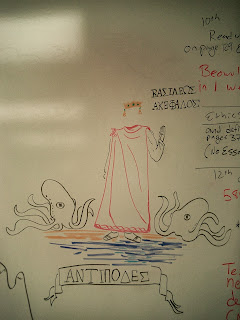September is here and Summer has ended (even if it doesn't feel that way outside) and it's time for the 2011 Summer Reading Awards, or as I like to call them: "The Seven Heavens of Summer Reading." The awards were established in honor of Michael Ward's "Planet Narnia," in which he claims that the seven books of The Chronicles of Narnia are ordered around the seven planets of medieval cosmology. In that spirit, each award is given to honor an excellent book whose content is in keeping with the attributes of one of the "seven heavens." With that bit of background, let's cut to this year's awards. Moon: "Howl's Moving Castle" by Diana Wynne Jones For the sphere of madness, flux, and change, there could be no better match than this story of magical transformations, mistaken identities, and mad Welshmen. Mercury: "The Four Quartets" by T.S. Eliot In the matter of manipulating language, T.S. Eliot's Nobel
